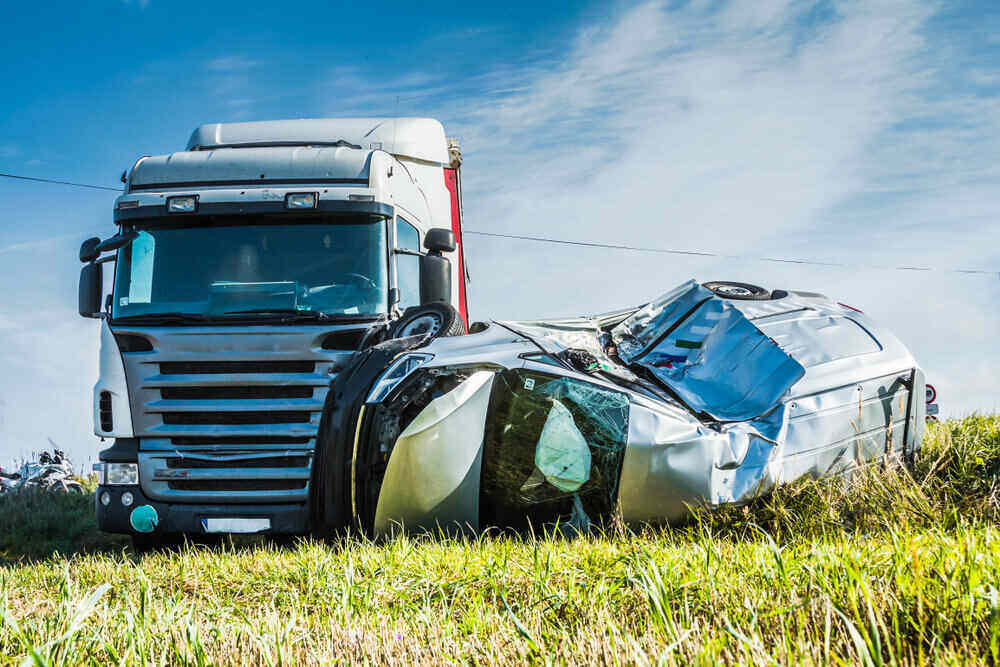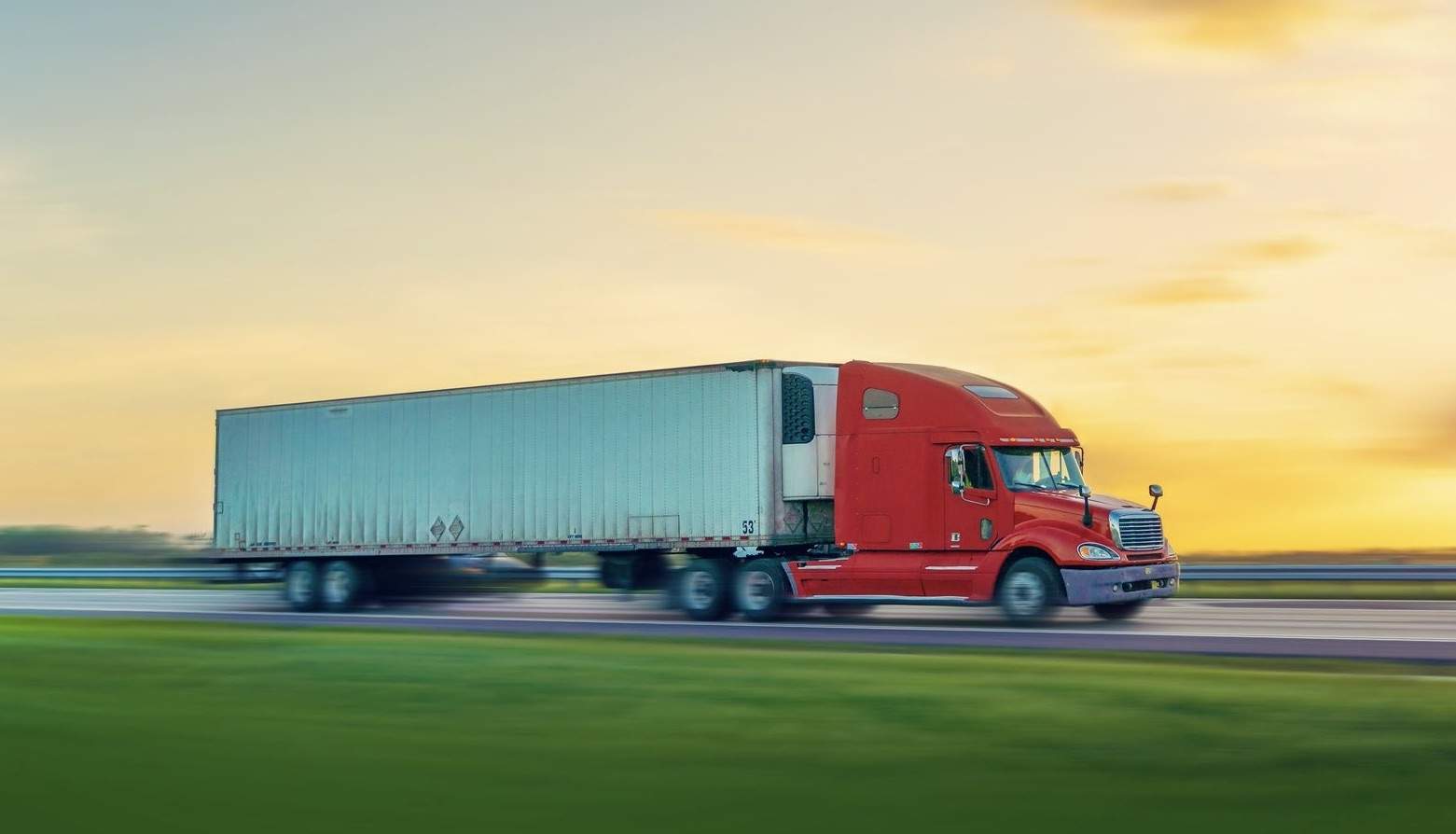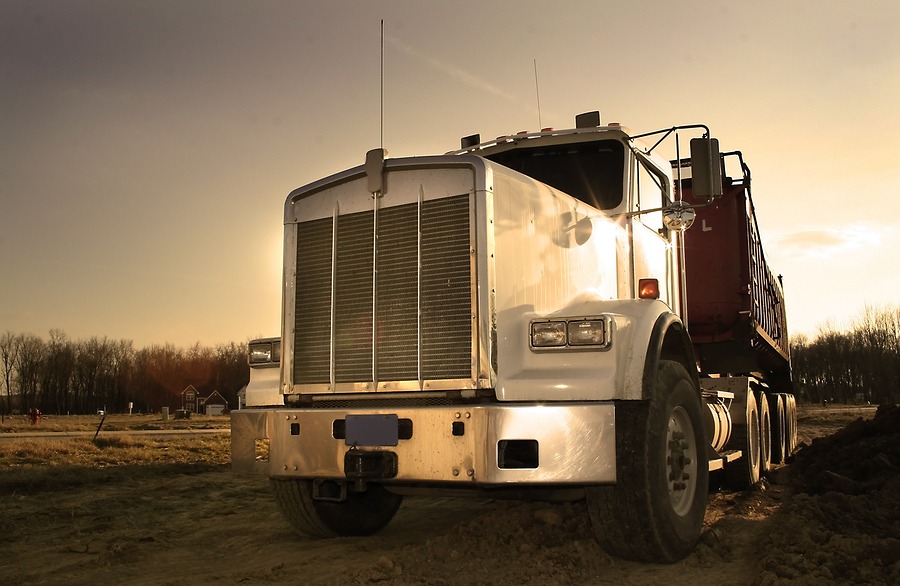

I. Introduction
What is an 18-wheeler accident?
An 18-wheeler accident refers to any collision or incident involving a large commercial truck, commonly known as an 18-wheeler or semi-truck. These accidents can be catastrophic due to the size and weight of the vehicles involved. They often result in severe injuries, significant property damage, and even fatalities. Due to the complexity of these accidents, it is crucial to hire the services of an expert lawyer who specializes in handling 18-wheeler accident cases.
Importance of hiring an expert lawyer for maximum financial recovery
When it comes to 18-wheeler accidents, hiring an expert lawyer is essential to ensure maximum financial recovery. Here’s why:
1. Knowledge and Experience: An expert lawyer specializing in 18-wheeler accidents has in-depth knowledge and experience in handling these complex cases. They understand the laws and regulations specific to the trucking industry and can navigate through the legal process efficiently.
2. Investigation and Evidence: A skilled lawyer will conduct a thorough investigation to gather evidence such as accident reports, witness statements, and surveillance footage. They will also work with accident reconstruction experts to determine liability and prove negligence.
3. Negotiation and Settlement: An expert lawyer will negotiate with the insurance companies on your behalf to achieve a fair settlement. They will ensure that you receive compensation for medical expenses, lost wages, property damage, pain and suffering, and other damages.
4. Litigation: In cases where a fair settlement cannot be reached, an expert lawyer will not hesitate to take the case to court. They will represent you aggressively, presenting a compelling case to the judge and jury to secure the maximum financial recovery.
5. Resources and Network: An expert lawyer has access to a network of professionals, including accident reconstruction experts, medical experts, and investigators. They can leverage these resources to strengthen your case and obtain the necessary evidence for maximum financial recovery.
6. Emotional Support: Dealing with the aftermath of an 18-wheeler accident can be overwhelming. An expert lawyer will provide you with the emotional support you need during this challenging time. They will guide you through the legal process, answer your questions, and provide reassurance and guidance.
In conclusion, hiring an expert lawyer for an 18-wheeler accident is crucial for maximum financial recovery. They have the knowledge, experience, and resources to navigate through the legal complexities and fight for your rights. If you have been involved in an 18-wheeler accident, don’t hesitate to seek the services of an expert lawyer to ensure that you receive the compensation you deserve.
II. Understanding 18-Wheeler Accident Laws
Overview of trucking regulations and laws
When it comes to 18-wheeler accidents, there are specific regulations and laws that govern the trucking industry. These regulations include:
1. Federal Motor Carrier Safety Administration (FMCSA) Guidelines: The FMCSA sets guidelines that trucking companies and drivers must adhere to, ensuring the safe operation of commercial vehicles.
2. Hours of Service (HOS) Regulations: Truck drivers are required to follow HOS regulations, which dictate the number of hours they can drive and the mandatory rest periods they must take to prevent driver fatigue.
3. Weight Limit Regulations: There are strict regulations regarding the weight limits for commercial vehicles to ensure that they can be safely operated on the roads.
How they affect an accident case
These regulations and laws play a crucial role in 18-wheeler accident cases. Here’s how they can impact your case:
1. Negligence: If a truck driver or trucking company fails to comply with these regulations, it can be considered negligence and may strengthen your case for maximum financial recovery.
2. Evidence Collection: Understanding these regulations allows expert 18-wheeler accident lawyers to gather the necessary evidence to prove the at-fault party’s negligence. This can include driver logs, maintenance records, and weight limit violations.
3. Liability Determination: By analyzing these regulations, lawyers can determine who is liable for the accident. This could be the truck driver, trucking company, or even the manufacturer of the truck or its components.
4. Proving Damages: Expert 18-wheeler accident lawyers understand how these regulations can be used to prove the extent of your damages, including medical expenses, lost wages, pain and suffering, and more.
Understanding the intricate details of 18-wheeler accident laws is crucial for building a strong case and fighting for maximum financial recovery. By working with an expert 18-wheeler accident lawyer, you can ensure that your rights are protected and that you receive the compensation you deserve.
III. Investigating the Accident
Gathering evidence from the accident scene
A skilled and experienced 18-wheeler accident lawyer understands the importance of thoroughly investigating the accident. They will gather evidence from the accident scene to build a strong case on your behalf. This may involve:
- Taking photographs of the accident scene, including any skid marks, vehicle damage, and road conditions.
- Collecting any available surveillance footage or witness statements that may support your claim.
- Working with accident reconstruction experts to determine the cause of the accident and establish liability.
By gathering this evidence, your lawyer can build a compelling case that demonstrates the negligence of the truck driver or any other party responsible for the accident.
Reviewing police reports and medical records
In addition to gathering evidence from the accident scene, an expert 18-wheeler accident lawyer will also thoroughly review police reports and medical records related to your case. This helps to strengthen your claim for maximum financial recovery. They will:
- Analyze the police report to understand the official findings and statements made by involved parties.
- Review your medical records to establish the extent of your injuries and the impact they have had on your life.
By carefully evaluating these documents, your lawyer can better understand the circumstances surrounding the accident and the full extent of your damages. This information is crucial for building a strong case and seeking the compensation you deserve.
In summary, a skilled 18-wheeler accident lawyer will conduct a thorough investigation, gathering evidence from the accident scene and reviewing police reports and medical records. This comprehensive approach ensures that every aspect of your case is carefully considered and helps to maximize your chances of receiving full financial recovery.
IV. Establishing Liability
Determining who is at fault in an 18-wheeler accident
In the aftermath of an 18-wheeler accident, determining who is at fault is a critical step in the legal process. An expert 18-wheeler accident lawyer will thoroughly investigate the accident to establish liability. This may involve:
- Gathering evidence such as accident reports, witness statements, and photographs
- Analyzing the truck driver’s logbooks and records
- Reviewing surveillance footage or dashcam videos
- Consulting with accident reconstruction specialists
By carefully examining all available evidence, an experienced lawyer will be able to determine who is legally responsible for the accident.
Proving negligence
To successfully pursue a claim for maximum financial recovery, it is crucial to prove negligence on the part of the at-fault party. In the case of an 18-wheeler accident, this often involves demonstrating that the truck driver or trucking company breached their duty of care to others on the road. This can be established by:
- Showing that the truck driver violated traffic laws or regulations
- Proving that the trucking company failed to properly train or supervise their drivers
- Demonstrating that the truck driver was fatigued, impaired, or distracted at the time of the accident
By presenting compelling evidence of negligence, an expert 18-wheeler accident lawyer can help build a strong case for maximum financial recovery on behalf of their clients.
V. Calculating Damages
Types of damages in an 18-wheeler accident case
In an 18-wheeler accident case, there are several types of damages that may be sought in order to compensate the injured party. These damages may include:
- Medical Expenses: This includes the cost of medical treatment, hospital bills, doctor visits, surgeries, prescription medications, and any other healthcare expenses related to the accident.
- Lost Wages: If the injured party is unable to work due to their injuries, they may be entitled to compensation for the wages they have lost. This can include both past and future lost wages.
- Pain and Suffering: This refers to the physical and emotional pain and suffering that the injured party has experienced as a result of the accident. It can include physical pain, mental anguish, emotional distress, and loss of enjoyment of life.
- Property Damage: If the accident resulted in damage to the injured party’s vehicle or other property, they may be entitled to compensation for the cost of repairing or replacing the damaged property.
- Loss of Consortium: In some cases, the spouse of the injured party may be entitled to compensation for the loss of the injured party’s companionship, support, and services.
Quantifying medical expenses, lost wages, and pain and suffering
When it comes to calculating damages in an 18-wheeler accident case, it is important to work with an experienced lawyer who can accurately assess the value of your claim. Some factors that may be considered when quantifying damages include:
- Medical Bills: Your lawyer will review your medical records and bills to determine the total cost of your medical treatment, including past and future expenses.
- Lost Wages: Your lawyer will calculate the income you have lost as a result of your injuries, taking into account any missed work and potential future loss of earning capacity.
- Pain and Suffering: Assigning a monetary value to pain and suffering can be more subjective. Your lawyer will consider the severity of your injuries, the impact they have had on your daily life, and any long-term consequences.
- Expert Testimony: In some cases, your lawyer may enlist the help of medical experts, economists, or other professionals to provide testimony and help quantify the extent of your damages.
It is important to note that every case is unique, and the specific damages you may be entitled to will depend on the circumstances of your accident and the extent of your injuries. An experienced 18-wheeler accident lawyer will work closely with you to gather all the necessary evidence and build a strong case to fight for maximum financial recovery.

VI. Negotiating with Insurance Companies
Dealing with insurance adjusters
When it comes to navigating the aftermath of an 18-wheeler accident, it’s essential to understand how to negotiate with insurance companies. Here are a few tips to help you deal with insurance adjusters:
- Be prepared: Before engaging in negotiations, gather all necessary documentation related to the accident, including medical records, police reports, and witness statements. Having this information readily available will strengthen your case.
- Stay calm and composed: Insurance adjusters may try to pressure you into accepting a low settlement offer. Stay calm and composed during conversations, and avoid making emotional or impulsive decisions.
- Know your rights: Familiarize yourself with the relevant laws and regulations surrounding 18-wheeler accidents in your jurisdiction. This knowledge will provide you with a solid foundation to negotiate from a position of strength.
- Document everything: Keep a detailed record of all interactions with insurance adjusters, including phone calls, emails, and letters. This documentation will serve as evidence and protect your interests in case of any disputes.
Tips for maximizing settlement offers
When negotiating a settlement with an insurance company, here are a few tips to help you maximize your financial recovery:
- Seek legal representation: Consulting with an experienced 18-wheeler accident lawyer is crucial in maximizing your settlement offer. They can help navigate the complex legal process, advocate for your rights, and ensure you receive fair compensation.
- Calculate your damages: Identify and document all damages resulting from the accident, including medical expenses, lost wages, property damage, and pain and suffering. Properly valuing your damages will give you a clear understanding of the compensation you deserve.
- Don’t accept the first offer: Insurance companies often make low initial settlement offers in the hope that accident victims will accept them out of desperation or lack of knowledge. Don’t be afraid to negotiate and counter their offer based on the true value of your damages.
- Consider long-term effects: Take into account any long-term medical treatment or rehabilitation that may be necessary as a result of the accident. Ensure that your settlement offer adequately compensates for any future expenses or impacts on your quality of life.
- Be patient and persistent: Negotiating a fair settlement can be a lengthy process. Stay patient and persistent, and don’t settle for less than you deserve. Your lawyer will guide you through each step of the negotiation process and provide valuable support along the way.
By following these tips, you can level the playing field and fight for maximum financial recovery after an 18-wheeler accident. Remember, having a skilled 18-wheeler accident lawyer by your side can make a significant difference in the outcome of your case.
VII. Taking the Case to Court
Preparing for trial
When a case involving an 18-wheeler accident goes to court, it is essential to have an expert 18-wheeler accident lawyer who is experienced in litigation. They will make sure your case is thoroughly prepared to present the strongest possible arguments and evidence. During this stage, the lawyer will:
• Gather evidence: The attorney will collect and review all relevant evidence, such as accident reports, witness statements, medical records, and expert opinions. They may also conduct further investigations and hire accident reconstruction specialists if necessary.
• Interview witnesses: The lawyer will interview witnesses to strengthen your case and gather additional information about the accident.
• Consult with experts: Depending on the complexity of the case, the attorney may consult with various experts, such as accident reconstruction experts, medical professionals, and economic experts, to provide insights and testimony.
• Review applicable laws and regulations: The attorney will thoroughly analyze the relevant laws and regulations related to truck accidents to build a solid legal strategy.
Presenting evidence and arguments
Once the trial begins, the attorney will present the evidence and arguments to support your claim for maximum financial recovery. This may involve:
• Opening statements: The attorney will deliver a persuasive opening statement to the jury, outlining the key arguments and evidence they will present during the trial.
• Examination of witnesses: The attorney will question witnesses to elicit important information and establish facts that support your case. This may include accident witnesses, expert witnesses, and medical professionals.
• Presenting evidence: The attorney will present all relevant evidence, such as accident reports, medical records, expert opinions, and any other documentation that strengthens your claim.
• Cross-examination: The attorney will cross-examine the opposing party’s witnesses to challenge their credibility and expose any inconsistencies or weaknesses in their testimony.
• Closing arguments: At the end of the trial, the attorney will deliver a compelling closing argument summarizing the evidence, highlighting key points, and urging the jury to rule in your favor.
It’s essential to have a skilled and experienced 18-wheeler accident lawyer who understands the complexities of these cases and can confidently represent you in court. They will use their expertise to fight for maximum financial recovery on your behalf.
VIII. Working with Experts
When it comes to a complex legal case like an 18-wheeler accident, working with experts can be crucial in ensuring maximum financial recovery. Here are two key types of experts that play vital roles in these cases:
The role of accident reconstruction specialists
Accident reconstruction specialists are professionals who use their expertise to determine the cause and details of the accident. They analyze physical evidence, witness statements, and other relevant information to recreate the sequence of events leading up to the crash. By examining factors such as vehicle speed, brake marks, and road conditions, accident reconstruction specialists can provide valuable insights into the cause and contributing factors of the accident. Their findings can be instrumental in establishing liability and building a strong case for maximum financial recovery.
Medical experts and their importance in the case
In an 18-wheeler accident case, medical experts play a crucial role in assessing and documenting the extent of the victim’s injuries. They provide expert opinions on the cause, severity, and long-term implications of the injuries sustained in the accident. Medical experts can testify on the necessity and cost of ongoing medical treatment, rehabilitation, and any future medical care required as a result of the accident. Their expertise and testimony help ensure that the victim receives fair compensation for their medical expenses, pain and suffering, and any long-term disabilities or limitations resulting from the accident.
By working with accident reconstruction specialists and medical experts, an experienced 18-wheeler accident lawyer can build a strong case on your behalf. They can gather the necessary evidence, establish liability, and calculate the full extent of your damages to fight for maximum financial recovery.
Note: We recommend consulting with a qualified attorney specialized in 18-wheeler accidents to discuss your specific case and understand the legal options available to you.
IX. Dealing with Long-Term Consequences
Addressing lifelong injuries and disabilities
In the aftermath of an 18-wheeler accident, individuals may be left with lifelong injuries and disabilities that greatly impact their quality of life. Expert 18-wheeler accident lawyers understand the complexity of such cases and work to ensure their clients receive the maximum financial recovery they deserve. These lawyers have in-depth knowledge of personal injury laws and are skilled at negotiating fair settlements or litigating on behalf of their clients. They will fight for the compensation needed to support clients with their long-term medical expenses, rehabilitation, and any modifications needed for their homes or vehicles due to disabilities.
Securing compensation for future medical expenses
One of the key responsibilities of an expert 18-wheeler accident lawyer is securing compensation for future medical expenses. When individuals suffer severe injuries in an accident, they may require ongoing medical treatments, surgeries, therapies, and medications for years to come. An experienced lawyer will work diligently to calculate and document these future medical expenses, ensuring that the injured party is adequately compensated. This compensation is crucial for the individual to receive the necessary medical care and support throughout their recovery journey.
Overall, when dealing with the long-term consequences of an 18-wheeler accident, it is essential to have an expert lawyer on your side. They will fight for your rights, advocating for maximum financial recovery and ensuring that you are not burdened with the financial strain of lifelong injuries and disabilities.

X. Settlement vs. Litigation
Pros and cons of settling vs. going to trial
Settlement:
Pros:
- Quicker resolution: Settling a case can often lead to a faster resolution, allowing you to receive compensation sooner.
- Less stress: Going through a trial can be emotionally draining, and settling the case can help alleviate some of the stress.
- Certainty: With a settlement, you know exactly how much compensation you will receive, whereas going to trial can be unpredictable.
Cons:
- Potentially lower compensation: While settling can provide quicker resolution, it may result in lower compensation than if you were to win at trial.
- Limited recourse: Once you reach a settlement, you typically cannot seek additional compensation if your damages were to worsen in the future.
- Loss of control: With a settlement, you give up the opportunity to have a jury decide your case and determine the amount of compensation you deserve.
Litigation:
Pros:
- Opportunity for higher compensation: Going to trial allows you to present your case to a jury, who may award you a larger sum than what the defendant offered in settlement negotiations.
- Full discovery process: Going through litigation provides an opportunity to uncover more evidence and potentially discover additional parties who may be liable for your injuries.
- Deterrent effect: By going to trial, you send a message to the defendant and others that you are willing to fight for maximum compensation, which may discourage future negligence.
Cons:
- Longer process: Litigation can be a lengthy and time-consuming process, especially if there are delays or appeals.
- Higher costs: Going to trial can be more expensive, as it often requires hiring expert witnesses, court fees, and other expenses.
- Uncertainty: Unlike settling, going to trial introduces an element of uncertainty, as the outcome is ultimately in the hands of the jury.
Factors to consider in making a decision
When deciding whether to settle or go to trial, several factors should be taken into account:
- Strength of the case: Assess the strength of your case and the evidence supporting your claim. If you have strong evidence and a convincing argument, going to trial may be a viable option.
- Potential compensation: Consider the proposed settlement amount and weigh it against the potential compensation that could be awarded at trial. Consult with your lawyer to determine what is a fair and reasonable settlement.
- Time and resources: Evaluate your willingness and ability to commit the time, resources, and emotional energy required for litigation. Going through a trial can be demanding, so consider how it may impact your personal and professional life.
- Risk tolerance: Determine your comfort level with uncertainty and the potential risks associated with going to trial. If you prefer a guaranteed outcome and want to avoid the potential pitfalls of a trial, settling may be the better choice.
Ultimately, the decision to settle or go to trial should be made in consultation with an experienced 18-wheeler accident lawyer who can provide guidance based on the specific circumstances of your case.


